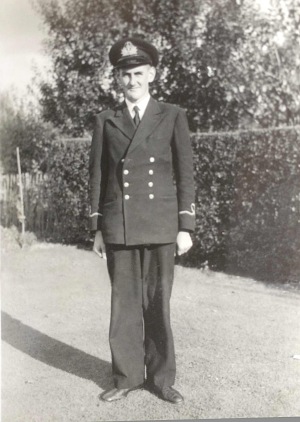In the year 1943, during the Battle of the Atlantic, Radar officer Philip Cox played a vital role attacking German submarines. After the war finished he returned to Midlands with Distinguished Service Cross and later became a renowned Barrister.
Early Years and Training as an Engineer
Philip J. Cox was born on September 28, 1922 to very strict Methodist parents. In 1941, Cox was selected to join a special science course at Queen’s College Cambridge, while he was still at school. This course was a part of the Admiralty’s plan for the deployment of radar systems on naval ships. His training took place at HMS Collingwood, where he learned about the operations and maintenance of radar systems (called radio direction finders at that time). These radar systems were getting fitted on frigates and destroyers, during WWII.
German U-boats Causing Havoc
The main reason behind the urgency for an effective radar system deployment on naval ships was the effectiveness and frequency with which German U-boats were targeting the convoys at sea. In March 1943, 60 ships carrying food and war materials were surrounded and attacked by over 18 German U-boats. Four merchant ships, along with a destroyer, ‘Harvester’ perished in the sea and only two U-boats were destroyed. In a matter of few days, Admiral Donitz was waiting in the mid-Atlantic with his 40 U-boats for a convoy of 100 merchant ships coming from North America to Britain, most of which were carrying food and supplies for the people and soldiers of Britain. When battle broke out, 22 ships were destroyed and Donitz had only lost one U-boat. The German establishment hailed this attack calling it “the greatest convoy battle of all time.”
Turning the Tide of War
Cox’s first war campaign at sea started when the ‘Keppel’ destroyer was sent to replace ‘Harvester.’ Cox was on board with all his equipment and expertise. This turned out to be a very significant move, and the presence of a radar system limited the operational capabilities of the U-boats. In April, German losses of U-boats rose to a significantly higher level and by the end of May, 34 U-boats were destroyed. The biggest success came on May 23, 1943, when a Convoy named HX239 touched the shores of Liverpool, safe and unscathed. This success was attributed to Cox and his Type 271 10cm radar system, The Telegraph reports.
A few months later, in September 1943, Cox faced General Donitz, who attacked the Convoys OPN 202 and ONS 18 with his 21 U-boats. The battle continued for five days, and due to adverse weather and poor visibility, Donitz had to call off the battle. Cox worked tirelessly to ward off the U-boats, continuously moving from one ship to another, repairing the radar systems and making sure the U-boats did not go undetected.
Recognition and Post-War Life
After the war, Cox was awarded the D.S.C (Distinguished Services Cross) for his part and contribution against German U-boats. After spending a year fighting enemy submarines, he went to ASE (Admiralty Signal Establishment) in Surrey to help build better radar systems for military. After leaving the service in 196, Cox transitioned back to civilian life when he decided to study law, and soon after he became the country’s leading figure as Barrister. He married Margaret Jocelyn in the year 1951 and from 1977 to 1992 he served as Deputy high court Judge. Philip Joseph Cox died on November 14, 2014.
